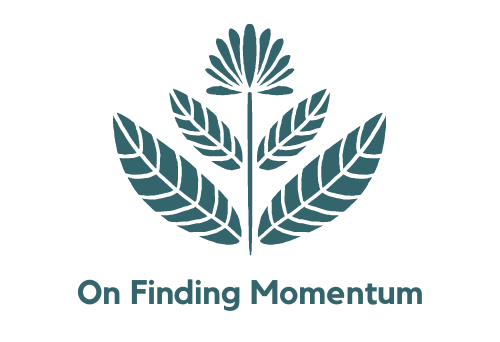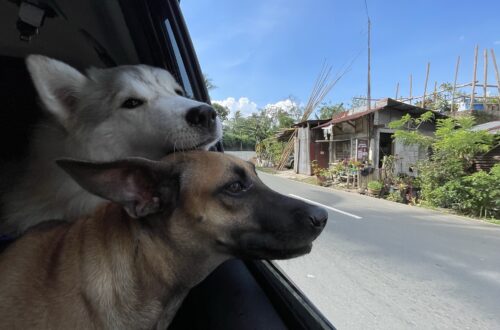
Wants and Don’t Wants
Being the easily bored person (or easily motivated, if you want to phrase it more positively), that I am, I started listening to Robert Kiyosaki’s Rich Dad, Poor Dad a few weeks back. Little by little, I got through the 6-hour audiobook, and I think it was a worthy investment of my time. It has offered great insights and made me realize a lot of things about the way I live life.
First of all, I don’t want to be rich-rich. I don’t want a fancy big house that people can get lost in or easily hide from each other. I don’t want a fancy car because it’s too impractical if you live in the city. I just want a comfortable life. However, the idea of becoming rich enough to not work by 50 or to have the luxury to travel the world without needing to convert each country’s currency to pesos for every spend, is definitely appealing.
The book said that a job is a temporary solution to a long term problem, the long term problem being the need to have money for food, mortgage, utilities, etc. I’ve never looked at it this way as I’ve always been programmed to study well, get good grades, and find a decent-paying job when I become an adult, which I did. I thought that the business route can only be achieved by those born with a silver spoon, those who are innately rich and have the ready capital to take risks and gain (or lose) significantly from these risks. However, what I didn’t realize before is that jobs also have associated risks for gains smaller than owning your business.
- You risk losing your job (even when you’re in a permanent position) either through retrenchment or resignation.
- You risk your mental and/ or physical health if you work too hard and don’t take good care of your body.
- You risk your relationships if you become emotionally detached from your family and friends because you focus too much on your career.
- You risk really “living” and “being” as you spend 8 hours (or more) of your life working.
So, I opened my journal (which I haven’t wrote on since March), and started listing down my wants and don’t wants.
Wants
- Have a decent home away from the city
- Not work multiple jobs to earn enough
- Have medical benefits
- Have an investment that actually grows
- Have a steady, passive income source aside from my job
- Provide my mother with her own home and income source
- Be able to travel the world
Don’t Wants
- Work until I’m 50
- Have no retirement fund
- Have no diversity in my investment
- Still pay for mortgage until I’m 50
- Not be able to pursue my passion
- Have no flexibility with my time
According to the book, the next thing you need to do to use your wants and don’t wants as a motivation to become creative in thinking of ways to achieve your wants and avoid your don’t wants. It also mentioned that you need to grow you asset column and reduce your liability column. The asset column also includes any non-monetary investments you have that could potentially help you increase your cash flow. So, right after finishing the book, I created a list:
Assets
- Life Insurance
- Stock
- Savings
- House
- Commissions
- Passion for learning
- Education
- Time
- Blog
Liabilities
- Phone bill
- Electric bill
- Internet bill
- House expenses
Life Insurance – Since I have variable life insurance policies, my investment could potentially grow and serve as my retirement fund. Therefore, even when I pay for it now, I don’t consider it as a liability. It’s my way of paying myself first. Shameless plugging here. If you have any life insurance questions, send me a message, or book a meeting with me here.
Stock – I have very little knowledge about the stock market, but I’m now expanding my understanding by reading more about it. I recently found the book, “The Intelligent Investor“, and I hope to learn more in the near future. As Benjamin Graham said, “An investment operation is one which, upon thorough analysis promises safety of principal and an adequate return. Operations not meeting these requirements are speculative.”
Savings – I recently learned a new investment type, LTNCD or Long-term Negotiable Certificate of Deposit. It’s a relatively safe 5-year deposit that provides indicative rates higher than most savings accounts, and it is not always offered by banks. I’ll make sure to catch the next offer when it comes.
Passion for Learning – I thought of channeling my adult ADHD energy to learning as much as I can about various things. I’m taking a Data Analytics training from the Development Academy of the Philippines through Project SPARTA. I also learn coding from time to time through FreeCodeCamp. In the next few months, I’m also planning to learn Sales and Marketing concepts further by reading a book my boss has recommended to me.
Education – It was a little late when I realized that I shouldn’t have pursued a master’s degree on the same field I studied for my undergraduate degree as it is a bit of an overkill. It will be better to pursue studies on another major to be more well-versed. Nevertheless, I’m happy with my Graduate studies experience, and I’m just glad I got through it.

The author also pointed out that we are sometimes too lazy to think because we believe too much in the worldview of success. Or, we look at what we consider as successful people and imitate what they did to reach success, when in reality, there’s no standard to success. When we free our mind of the idea that “it may not work” or “it didn’t work for others, and it wouldn’t for me”, we become more open to non-conventional ideas which may in fact work for us. Of course, it’s nice to be guided by experts or experienced individuals, but we musn’t be too reliant on others’ lists that we forget to create a list of our own. After all, we are given the power to think uniquely. Why not train our mind to this? The brain, as we all know, is a muscle, and can be exercised to perform better. So, I’ve started listing down ideas that I think could get me more financially stable. I’m testing them one by one, setting aside my fear for rejection or failure. As Yoda said, “Do or do not. There is no try.” I’m now committed to being a doer rather than a dreamer.
I know a lot of people who would like to have a normal life and work normal hours. However, they’re afraid that they’ll lose a great opportunity if they quit. Or, most of us think that being employed is the safest route to go. At least I did. When I finally quit my job, I was practically jobless for almost a month. Since I didn’t have anything to fear anymore, I had a stronger drive to win and not regret my decision. I became more creative and determined, and I didn’t realize this until recently. I also realize that I’ve taken the first step to success: I let go of one of my biggest fears.
With this, I realized that “the moment you let go of your fear is the moment you become closer to your full potential.”
So, my friend, be brave.



